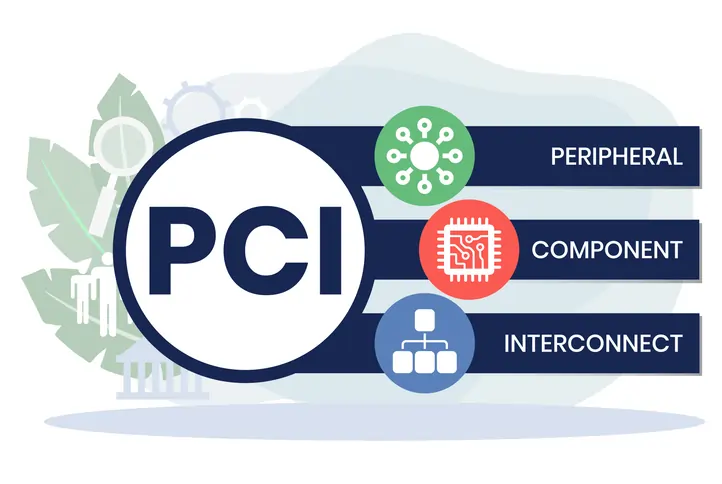
If your business accepts card payments, you are expected to follow a set of rules that protect sensitive customer data. These rules are known as PCI DSS or Payment Card Industry Data Security Standard.
It is a global security standard. The aim is to prevent card fraud and reduce the risk of data theft during payment transactions.
Let’s look at what PCI data security is and how it applies to your business.
What is PCI DSS?
PCI DSS was introduced by major card companies like Visa and MasterCard. It was created to guide businesses on how to handle cardholder information safely.
The standard has 12 core requirements. These cover everything from secure systems and firewalls to regular monitoring and access control. The goal is to reduce weak points where card data might be exposed.
If you collect, store, or transmit card information in any way, you need PCI compliance.
That’s why tools like RevoPCI are helpful. They make it easier to follow these rules and keep your IVR payments secure.
Why PCI compliance is important?
PCI compliance is important because it helps protect your business and your customers from card fraud and data theft.
It shows that you are handling card payments safely. And that builds trust. If you are not compliant, a single breach could:
Cost you millions
Hurt your reputation
Even gets you banned from accepting card payments
Example:
In 2013, the retail company Target had a big data breach. Hackers stole the card details of more than 70 million customers.
They got into the system through a third-party vendor. At the time, Target was not fully following PCI rules.
The breach cost the company over 162 million dollars in fines, legal costs and other expenses. It also hurt their reputation for years.
PCI DSS is not just a checkbox. It is protection for your business reputation.
Note: For companies in the UK, PCI compliance is especially important because most acquiring banks require proof that you are following the standard.
Being PCI compliant shows that your business takes payment security seriously and also helps reduce liability if something goes wrong.
Quick fact
According to IBM’s latest report, the average cost of a data breach around the world was $4.9 million. That is a 10% jump from the year before.
Who needs to follow PCI DSS?
Any company that touches cardholder data needs to comply. This includes the following:
Shops using card machines
For example, retail stores that use in-store payment terminals to process customer transactions must meet PCI DSS requirements to protect payment details.
Online sellers taking payments through websites
Any e-commerce site that accepts card payments through its checkout system is required to follow PCI compliance standards to keep customer information safe.
Phone support teams using PCI compliance payment systems
Call centres that take payments over the phone must use PCI DSS–compliant systems so that card details are never stored, recorded, or overheard during the transaction.
Third-party providers handling card data on behalf of others
Payment processors and service providers that manage transactions on behalf of other businesses must follow PCI DSS to ensure all cardholder data remains secure.
Did you know?
Even small businesses are included.
A local pizza shop taking card orders over the phone? They need PCI compliance, too.
What are the main requirements?
There are 12 major requirements. These fall into six broad categories.
1. Build and maintain a secure network
Use firewalls
Avoid using vendor-supplied defaults for passwords
2. Protect cardholder data
Encrypt transmission of cardholder data
Secure storage if needed (or avoid storing at all)
3. Maintain a vulnerability management program
Use antivirus software
Keep systems up to date
4. Control access to cardholder data
Limit access to only those who need it
Assign a unique ID to each user
5. Monitor and test networks
Track and monitor access to systems
Regularly test security systems and processes
6. Maintain an information security policy
Document all security measures
Train staff on best practices
These steps apply whether you are a large enterprise or a small merchant.
Getting PCI compliant: Where to start?
Start with a PCI Self-Assessment Questionnaire (SAQ). This is a checklist that helps you evaluate your current level of compliance.
Next, identify which parts of your system deal with cardholder data. You want to reduce this footprint wherever possible.
For phone payments, consider using PCI compliance payment solutions that prevent card data from being heard or stored during the call. For online payments, work with payment gateways that meet the highest level of PCI DSS.
If you operate in the UK, consult your acquiring bank or payment provider for guidance on PCI UK compliance requirements.
Quick fact
A survey by Protegrity found that when PCI DSS 4.0 came into effect, 64% of businesses said they struggled with things like documentation and encryption. Only 32 percent felt fully ready for the new rules.
Summary
PCI DSS is not just for big companies. It applies to anyone dealing with card payments. Following the rules protects your customers and keeps your business safer.
You don’t need to be an expert in cybersecurity to meet these requirements. Start with the basics, keep improving and stay up to date.
Need help securing phone payments? Talk to us about PCI-compliant IVR solutions.
FAQs
I am a UK-based merchant. Are there different PCI UK compliance requirements?
Yes. While PCI DSS is a global standard, PCI UK compliance often includes added expectations from your acquiring bank or card processor. UK merchants may be asked to provide compliance evidence annually. Choosing a provider like RevoPCI can help you meet both international and local requirements smoothly.
Can PCI compliance actually help my business?
Definitely, being PCI compliant doesn’t just help you avoid fines or breaches; it also builds customer trust. It shows you care about protecting their data. Plus, when you use reliable PCI compliance payment tools, your operations run more securely and efficiently.
Do I need PCI compliance if I use a third-party payment gateway?
Yes. Even if you use a third-party provider like Stripe or Worldpay, you are still responsible for making sure the provider is PCI compliant. You may qualify for a simplified compliance process (like SAQ A), but you are not fully off the hook. It is your job to validate that the provider meets PCI DSS requirements.
What happens if my business is not PCI compliant?
Non-compliance can lead to serious consequences: fines from your bank, security breaches and even being banned from processing card payments. Worse, if a breach happens and you aren’t PCI compliant, your business could be held fully liable.


